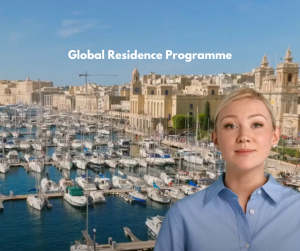
Local companies are reaching to the rest of the world to find new employees. International workers are crucial to Malta’s economy and workforce. As a small island nation with limited resources and a population of over 500,000, Malta’s economy heavily relies on foreign investment, tourism, and international trade. The country’s thriving tourism and other industries require a substantial number of international workers to sustain and grow.
Moreover, the Maltese government has been actively promoting the country as an attractive destination for foreign workers and businesses. The government has implemented various measures to attract international talent, such as tax incentives, startup residency programmes, promising work permit regulations, and streamlined immigration processes.
In recent years, Malta has seen an increase in international workers, especially in the technology, financial, and gaming sectors. Over and above, there is also a big number of individuals relocating to Malta as manual workers, normally being Third Country Nationals (TCNs). Manual workers are individuals who perform physical labour or manual tasks that require strength, skill, and sometimes specialised training. These jobs typically involve using tools, machinery, or equipment to construct, repair, or maintain various structures, such as construction workers, electricians, plumbers, mechanics, factory workers, warehouse workers, delivery persons, nurses, and carers, among others.
Manual workers play an important role in many sectors of the economy of Malta. The influx of international workers has also contributed to Malta’s cultural diversity, which has brought a positive and a negative impact on locals. International workers bring a variety of skills, experiences, and perspectives that can help local businesses expand globally, foster innovation, and create new opportunities for growth. Overall, international workers play a crucial role in Malta’s economy and society, contributing to the country’s growth, development, and diversity.
If you are an employer in Malta looking to hire TCNs, it is important to note that they require a Single Work Permit to be able to work and reside in the country. Once a TCN has accepted a job offer in Malta, they will need to apply for a Single Work Permit and provide the necessary documents. Once the application is accepted in principle, the individual will need to apply for a Visa at the nearest Consulate or Embassy. When the Visa is granted, they can travel to Malta to begin working in Malta. Upon arrival, they will need to finalise the Single Work Permit process and apply for a Maltese Residence Card. It’s good to know that most of the processes are dependent on the employer.
Our team at Sciberras Advocates is experienced in assisting employers with obtaining Single Work Permits, Visas, and Residence Cards for your new employees. We can handle all the paperwork and ensure that the process goes smoothly. If there are any rejections, we can also handle appeals directly with our firm. If your business requires assistance with work permit documentation in Malta do not hesitate to contact us. We are here to handle all your paperwork and ensure that the process is stress-free.
This article is for information purposes only and should not be construed as legal advice.
Article written by Ms Charlene Sciberras, B.A. (Hons), guest writer, is a marketing and business administration specialist with a special focus on corporate, accounting, and legal matters.
Sciberras Advocates founded by Dr Adrian Sciberras, is a law firm based in Malta. The firm prides itself to be multi-disciplinary, innovative and flexible in order to meet the changing times and any challenges in the local and international legal scenario. No matter what private or corporate complex demands are called for, Sciberras Advocates offers practical and cost-effective legal solutions to achieve your desired results. You may reach Sciberras Advocates by phone on +35627795222 or via email on [email protected].




